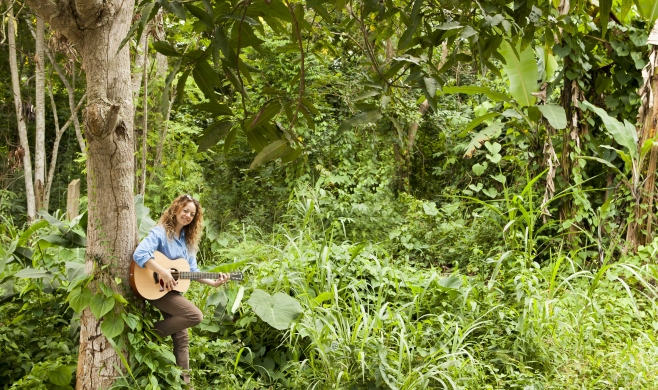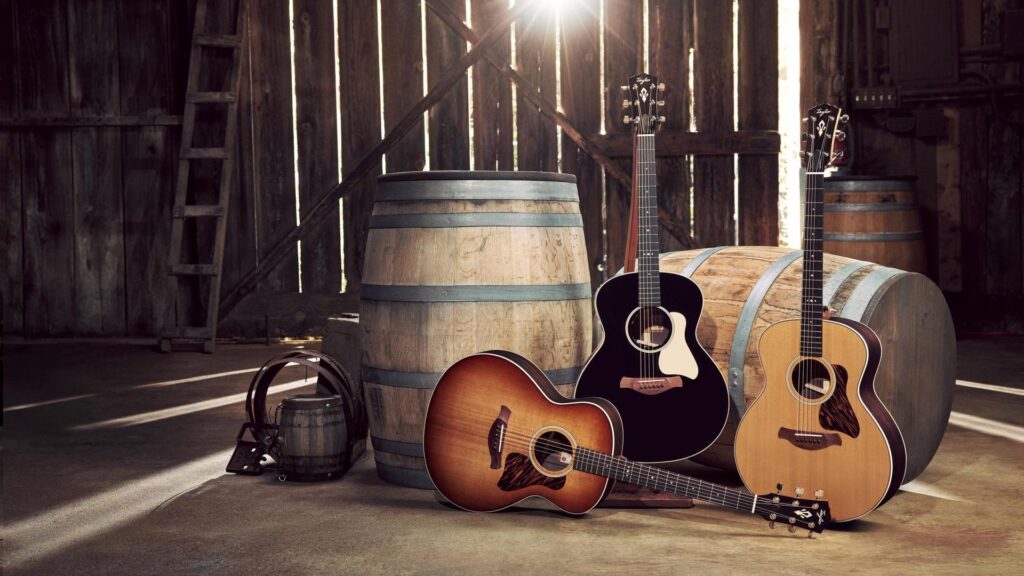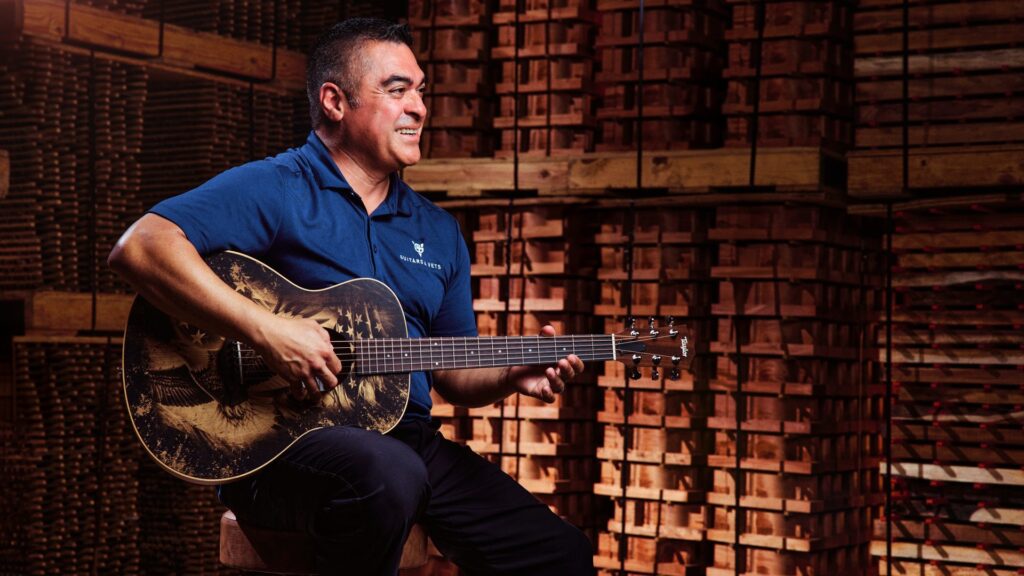Anne Middleton is Taylor’s Environment and Community Relations Manager. She currently lives in Yaoundé, Cameroon, where she is a member of our operations team for Crelicam, an ebony mill located there and co-owned by Taylor Guitars and Madinter Trade. She’ll be sharing regular field reports on Taylor-Madinter’s ebony sourcing efforts and sustainability initiatives.
Responsible forest management is an important tool for keeping value in the world’s forests. Proper management allows them to continue to be forests, rather than be transformed for other land uses such as urban development or palm oil plantations.
Recently I was able to visit the great rainforests here in Cameroon and get a first-hand look at the exact location of the ebony trees we are harvesting.
Arriving at an ebony stump took five hours of driving on a paved road and four hours of driving on a dirt road (including some pretty awesome use of a 4×4 truck). These precious trees are not easy to find, but our skilled team of suppliers knows exactly where to look. Unlike the images of clear-cut rainforests of Brazil or Indonesia, ebony harvesting is selective. With proper long-term forest management, the ecosystem dynamics can be maintained.
Ebony is widely dispersed throughout the forests in the southern half of Cameroon. Crelicam’s suppliers must find the ebony trees on foot, cut them down, and saw them into manageable logs so they can be carried out on their heads. The average dry weight of ebony is 65 lbs./ft3 but the wood coming straight from the forest is wetter — hence heavier — than that. The average log coming out of the forest weighs approximately 35-45 kg (77-99 pounds). Imagine carrying that out on your head with no groomed path; it’s difficult work!
Since Taylor and Madinter assumed ownership of Crelicam, we’ve been implementing new measures to increase both the work standards for the employees and the sustainability of the raw material. The best example of improved practices is when we increased the price of the “déclassé” wood — ebony which may have cracks, pinholes or white streaks. This creates incentive for the suppliers to bring in every bit of ebony from the forest, and not only the pitch-black wood. Unfortunately, with Cameroonian technology, it’s nearly impossible to determine the quality of the ebony before the tree is felled. We are working with the suppliers to help them understand that if an ebony tree is felled, bring it in — we want it! That message is sinking in slowly. Constant education and monitoring of the suppliers is necessary in order to maintain our new methodology, but that’s why I’m here, and we have a great management team and Crelicam to help reinforce the message. Simultaneously, we’re working out new systems at the factory to increase yield. Little by little, we are cutting fewer trees to make more fingerboards, and our employees are seeing positive changes in their working conditions.



























